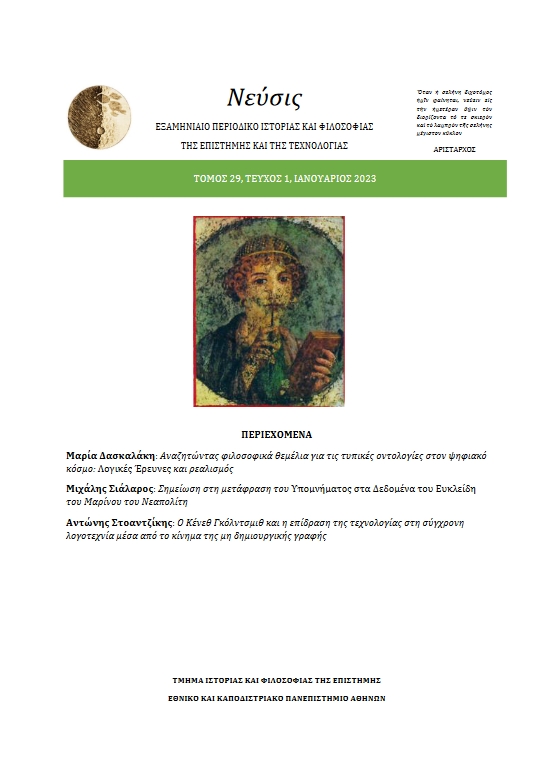Kenneth Goldsmith and the impact of technology on contemporary literature through the uncreative writing movement

Abstract
What if someone was trying to print out all the content on the internet? A “Washington Post” study shows that the result would be about 305.5 billion pages. To realize the size, the volume of the printed internet is as much as 212 million copies of the book "War and Peace" by Leon Tolstoy. How does this abundance of texts affect contemporary literature? What is the new environment for the book? What is it like for the modern creator to face an unprecedentedly available digital text? In 2011, the American poet and literary critic Kenneth Goldsmith wrote, paraphrasing the artist, Douglas Huebler, “The world is full of texts, more or less interesting; I do not wish to add any more.” With these words he wanted to lay the foundations for the existence of a new current in contemporary creative writing that, paradoxically, goes by the name of “uncreative writing”. Instead of the artist's originality and genius, Goldsmith invites us into the world of "uncreativity" that functions as a new point of reference, an achievement of literature. In recent years poets, commentators and literary critics have begun to recognize this particular movement or set of techniques as the new literary avant-garde that emerged and was recognized in the 1990s as an independent practice and as a response to the growing prevalence of networking technologies and internet culture. Recognizing that at the end of modernism and postmodernism the creative writing arts entered a new, technology-driven model, emphasizing that the problem nowadays, where unprecedented and relentless text production has led to a plethora of texts, is systematic management. They point out that the first concern of writers of our time should be how to manage this abundance of cultural data. This article tries to penetrate the world of “uncreativity”, researching the involvement of literature with the digital media of our time, but also the complex state of the book as a cultural hybrid.
Article Details
- How to Cite
-
Stoantzikis, A. (2024). Kenneth Goldsmith and the impact of technology on contemporary literature through the uncreative writing movement. Neusis, 29(1). https://doi.org/10.12681/nef.32972 (Original work published February 2, 2023)
- Section
- Articles


